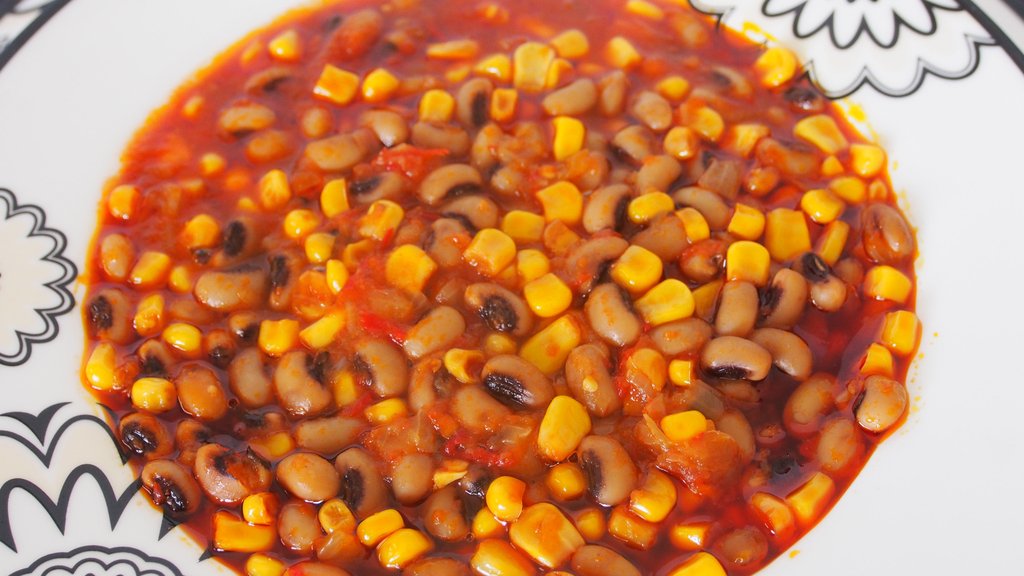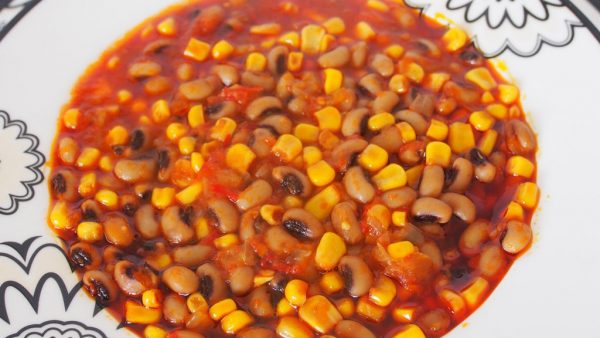Food is central in defining family roles, rules and traditions. It is so vital a social activity that we partake in it from cradle to the grave. Every culture has its own food, drinks, eating habits and recipes. Every meal has its own history. Some of the recipes we use today are a couple hundred years old; they were handed down by oral tradition.
The Yoruba live mostly in southwestern Nigeria. Traditionally, the Yoruba organize themselves into networks of related villages, towns and kingdoms; most of these towns and villages are headed by an Oba (King) or Baale (a nobleman or mayor). The Yoruba are a people with rich culture and tradition. They have a variety of food items from which locally based foods are made. Yam, cassava, beans and corn are some of the favorite foods of the people.
On our food history segment today is Adalu. It is a delicious traditional meal that is indigenous to the Yoruba. They also call this food, ewa ati agbado. The Igbo call this nutritious meal agwa na oka. This means that adalu is a one pot meal of beans and corn. It is a great way to enjoy beans because it offers you the best of two foods in a single meal. Black eyed beans is reputed to be the best type of beans for preparing this food.
Adalu is cooked in different ways. While some people prefer tomato stew base for the porridge, others prefer a simple palm oil base. Again, while some people prefer more corn to beans, others prefer the opposite. While some people prefer fresh corn for this delicacy, some others prefer canned sweet corn. Some people even add meat and fish to this porridge.
I’m a beans lover and I come from a family of very tall people who love beans. While growing up, my siblings and I heard and believed the sacred lie that beans contains growth hormones. I thank God that I’m tall too because my children will also hear and believe this lie as them go chop beans tire. Lol. Anyways, while growing up, my family had and still has an open door policy. So, with many big cousins coming and going from my house, I had the privilege of enjoying varieties of this porridge. It is my humble opinion that the method of preparation rarely detracts from the sweetness of this meal.
Sources:
Adepeju Oti and Oyebola Ayeni “Yoruba Culture of Nigeria: Creating Space for an Endangered Specie,” Cross-Cultural Communication, Vol. 9, No. 4, 2013
My Diaspora Kitchen
Featured image source: Mummy’s Yum


